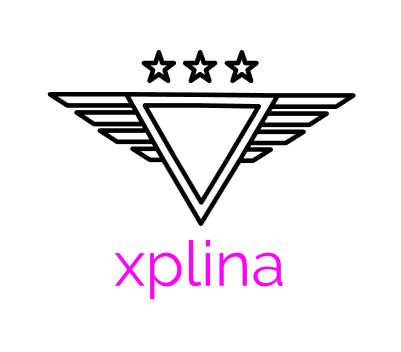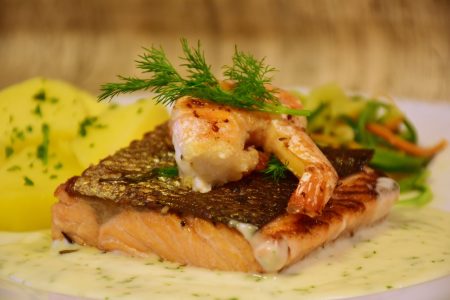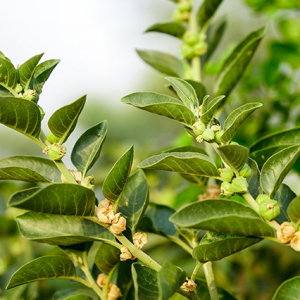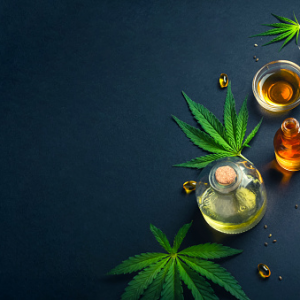Protein is an essential nutrient that helps in the repair and maintenance of body tissues. Moreover, it is critical in supporting growth and development of body tissues. It is made up of amino acids, and a balanced diet that includes a variety of high-protein foods can help ensure that a person gets enough of these essential nutrients. Protein deficiency and malnutrition is associated with low levels of immunity, decreased growth rates and loss of muscle mass among other health complications. In this post, we will discuss some of the best high protein foods that one may want to consider to improve their protein intake. Read on for the details…
What is Protein?
Protein is a macronutrient that is essential for the growth, maintenance, and repair of the body’s tissues, including muscles, bones, and skin. It is made up of amino acids, which are the building blocks of proteins. Out of the 20 amino acids, the building blocks of proteins, 9 are essential. Essential amino acids aren’t synthesized by the body. They must be obtained through diet. On the other hand, non-essential amino acids can be synthesized by the body.
Daily Protein Requirement by Weight
The Recommended Dietary Allowance (RDA) for protein is 0.8 grams of protein per kilogram of body weight daily. However, this value is considered to be the minimum amount needed to meet the needs of most healthy individuals. Subject to a host of other factors, the average protein requirement for an adult human will vary.
One of the factors that determine an individual’s daily protein requirement is weight. And below is a breakdown of a person’s weight versus protein requirement:
Quick Read: Know more about Cysts
- For a person weighing 110 pounds (50 kg), the daily protein requirement should be approximately 40 grams.
- An adult weighing 132 pounds (60 kg) requires approximately 48 grams daily.
- A 165 pounds (75 kg) adult may require up to 60g of proteins every daily.
- For a person weighing 198 pounds (90 kg), the daily protein requirement is 72 grams.
- A person weighing 220 pounds (100 kg) requires up to 80g of proteins daily.
Take note that what we have enlisted above are but averages. The actual values are likely more that the suggested values.
Quick Read: How to prevent loss of collagen
Factors Affecting Daily Protein Requirements
Besides weight, there are several other factors that can affect your daily protein requirement. Some of these include age, sex, activity level, muscle mass, and overall health.
i. Age of the Individual:
Infants and children have higher protein needs than adults, as they are still growing and developing.
ii. Sex of the individual:
The amount of protein requirement is higher among men that for women, due to their larger muscle mass.
iii. Level of Daily Activities:
Athletes and individuals who engage in regular physical activity need more protein than sedentary individuals to support muscle recovery and repair.
Quick Read: Health benefits of Edamame
iv. Muscle Mass:
Individuals with more muscle mass need more protein than those with less muscle mass.
v. Overall health:
People diagnosed with medical conditions such as kidney disease, liver disease, and some other related health conditions, ought to reduce their protein intake. On the other hand, pregnant or breastfeeding mothers may need a higher amount of protein intake.
Examples of High Protein Foods
1. Chicken breast:
A staple in many diets, chicken breast is lean protein source that contains 31g of protein per 3.5 oz (100g) serving. It is versatile and can be cooked in a variety of ways, including grilling, baking, and sautéing.
2. Tuna fish:
Tuna is a type of fish that is high in protein and omega-3 fatty acids. It is a popular protein choice for people on a low-carb diet. In terms of protein content, it contains up to 26g per 3.5 oz (100g) serving.
3. Eggs:
Another great source of protein that is not only affordable, but also readily available. The amount of protein available in a large egg averages about 6g. And that’s not all. Eggs are also rich in healthy fats, vitamins, and minerals.
Quick Read: Health benefits of CBD oil
4. Cottage cheese:
Cottage cheese is a creamy, soft cheese that usually has a high level of protein and a significantly low amount of fat. The actually protein content in cottage cheese is 14g per 4 oz (113g) serving. Moreover, this healthy protein source is also used in salads and sandwiches. You may also choose to eat it as snack.
5. Greek yogurt:
To get your Greek yogurt, all you need to do is strain the whey that you have derived from regular yogurt. However, unlike your regular yogurt, this one is thicker and creamier. The protein content per 6 oz (170g) serving is anywhere in the range of 15 – 20g.
6. Almonds:
If you are a fan of plant based proteins, then consider checking out almonds. In addition, it also contains significant levels of healthy fats. The protein content per serving (28g) is approximately 6g.
7. Peanut butter:
This is a popular spread that’s made from ground and roasted peanuts. It contains up to 8g of protein per 2 tablespoons (32g) serving. It can be enjoyed as a spread on toast, as an ingredient in baking or cooking, or as a protein-rich snack when paired with celery, apples, or crackers.
Quick Read: Ketogenic Diet beginners guide
8. Lentils:
They are not only rich in plant based fibers and iron, lentils are also a great source of plant-based proteins. A cup serving of 198g has up to 18g of pure protein. They can be used in soups, stews, curries, and even as a meatless burger patty.
9. Quinoa:
Quinoa is a gluten-free grain that is high in protein, fiber, and other nutrients. It contains 8g of protein per cup (185g) serving. Quinoa can be used as a side dish, in salads, or as a base for a grain bowl.
10. Black beans:
They are rich in plant proteins and fiber, together with a host of other nutrients. Black beans are a good source of plant-based protein, fiber, and other nutrients. They contains 15g of protein per cup (172g) serving. They can be used in soups, stews, burritos, and salads.
11. Tofu:
A high protein soy based food that’s low in fat and has no cholesterol content. A 3.5 oz (100g) serving of Tofu contains an estimated 10g of pure protein. What’s more, you can use Tofu as a meat substitute in a variety of dishes, including stir-fries, curries, and soups.
12. Edamame:
A popular snack in most Japanese cuisines. These soybeans contain an estimated 8g of protein per cup (155g) serving. If you are looking for a high protein plant based food, you would definitely want to try out edamame.
13. Milk:
Milk is a whole food which is rich in a number of nutrients. A cup (244ml) serving of milk contains approximately 8g of protein. In addition, it also contains some vital nutrients such as calcium, vitamin D, among others.
14. Beef:
An important source of a wide array of nutrients, including high quality animal proteins, as well as zinc and iron minerals. It contains 26g of protein per 3.5oz (100g) serving. And grilling, baking, and sautéing are a few of the common ways by which meat can be cooked. Unlike the case with vitamins, overcooking beef doesn’t interfere with the nutrients content.
Quick Read: Health benefits of Ashwagandha
15. Salmon fish:
It is rich in Omega-3 fatty acids, proteins and a host of other essential nutrients. And like beef, salmon fish as a range of options for cooking it. You may choose to grill, smoke, or may be have it baked. It’s all up to your taste and preference. A 3.5oz (100g) serving of salmon fish contains an estimated 22g of pure animal protein.
16. Pork tenderloin:
Pork tenderloin is a lean cut of pork that is high in protein and low in fat. It contains 22g of protein per 3.5 oz (100g) serving. It can be grilled, baked, or sautéed.
17. Turkey breast:
If you are a fan of lean proteins, then turkey breast of one option you definitely would want to give a try. The options for preparing it are also many, including roasting, grilling, and even baking. Similarly, there are countless ways for eating your turkey breast. One, you may choose to eat it with salad or with sandwiches.
18. Whey protein powder:
Whey protein powder contains up to 24g of protein per scoop (30g) serving. And in case you didn’t know, whey is a byproduct of cheese production. That’s where the journey starts. Whey protein powder is ideal for persons interested in gaining muscle mass, athletes, as well as bodybuilders.
Remember that the serving size mentioned for each of the proteins enlisted depends solely on the target nutrients. Meaning, it is not fixed. What’s more, it is always a great idea to consult a qualified nutritionist or doctor on matters diet. Don’t just make a switch to a different type of food without expert advice.
FAQs
Conclusion
Protein is an essential nutrient that plays a critical role in maintaining and repairing the body’s tissues. It is also critical in supporting growth and development. Eating a variety of high-protein foods can help ensure that a person gets enough of these essential nutrients. However, it is important to consult with a healthcare professional to determine the appropriate amount of protein for your individual needs.



























